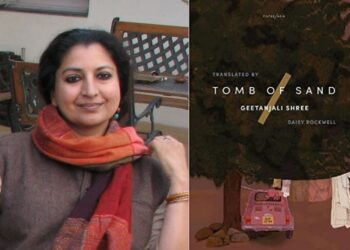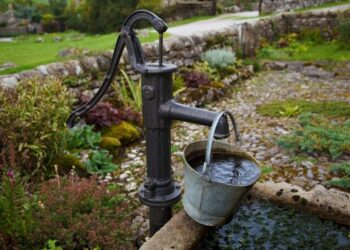Engineer Devakumar Narayanan lived in the UAE for four years, working a 9-5 corporate job and leading a fast-paced lifestyle. Saranya, his wife, joined him shortly after, the arduous pace and style of life that his position demanded left the couple with a strong desire to return to their native Kerala.
So, in 2018, they returned to Kasaragod, intending to start their own business.
They had planned to create a business of our own from the beginning, but they were unsure what it would be. They were convinced that it had to be a company with a substantial cause and social responsibility. As a result, they began brainstorming ideas that matched their goals.
After deciding to get into the company for themselves, they began looking for domestically available and pure uncooked materials that could be their USP.
They reduced it down to areca nut leaf sheaths, also known as Paala in the United States, after considering various options. Areca nut trees grow in Kasaragod abundantly, making it easier to supply the produce. They’re also environmentally friendly, biodegradable, and a terrific alternative to plastics.
After finalising the concept, they started looking for a meaningful model title that matched their business purpose. Plastic and paper can both be substituted with Areca nut leaf sheaths. By adding the concept of significantly less paper and plastic, they termed it ‘Papla.’
Papla, which began operations in 2018, now produces products ranging from tableware to luggage made from areca nut leaf sheaths, with monthly revenue of Rs 2 lakh.
Save Environment: reduce the use of plastic.
Devakumar and Saranya immediately set up a small manufacturing facility near their home in Madikai panchayat, which presently employs seven people. Sheaths are primarily sourced from Kasaragod and, in some cases, Karnataka. They buy them after guaranteeing their excellent quality and pay the producers based on various parameters such as selection, measurement, and so on.
Using areca nut leaf sheaths in their seasonal availability is one of the many obstacles they encounter. The sheaths are only retrieved once they have fallen out of the wood and in no other instance. They are only accessible during the areca nut tree’s flowering season. As a result, they must ensure that the inventory is sufficient for the year’s balance. This necessitates a large storage area, which we’ve set up in conjunction with our apartment.
Papla’s products are primarily tableware such as plates, bowls, and spoons. They also customise them based on customer needs. They now offer dinnerware in various forms and sizes, such as plates ranging from 4 to 10 inches in diameter, shallow and deep bowls, spoons, and so on.
What services do they provide?
Tableware such as plates, bowls, and spoons make up the majority of Papla’s offerings. They have plates ranging in diameter from 4 to 10 inches, shallow and deep bowls, teaspoons, and other dinnerware in various sizes and shapes. They also personalise them according to user preferences.

In addition to tableware, Papla creates packaging for handcrafted soaps, badges, caps, hand-fans, grow bags, and wedding invitations. They make their bags by hand. They’re made by weaving all of the sheaths together.
They claim that because the sheath is biodegradable, they cannot guarantee lifespan. They also suggest using them briefly while giving a plant or sapling that may be transplanted.
The company recently designed wedding invitations printed on these leaf sheaths. They create wedding invites on sheaths instead of paper using UV printing technology.
They also use the same technology to generate special occasions and events badges. One of the workers added that it is an excellent substitute for traditional plastic tags.
What are the prices of their goods?
Tableware, which spans from Rs 1.50 to Rs 10, is Papla’s best-selling item. Grow bags, for example, are priced at Rs 40, while caps are priced at Rs 100. Customers can purchase over the phone or on their website. According to the duo, they export their products on a limited basis and intend to expand into handicrafts in the future. They are now looking to increase their product’s international market. They’ve also opted to try using additional natural raw materials like banana fibres and coconut shells.










